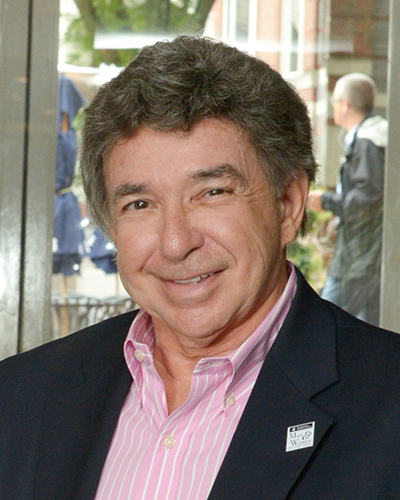
Right now, eating away from home is a strong part of our daily lives - by Dennis Serpone

National Restaurant Exchange
Depending on your purview, the economy is stream-rolling along. The restaurant industry, with hundreds of thousands of food and liquor-related businesses, depending geographically where you are, the industry is strong. But that strength ebb and flows with a myriad of factors...weather, economy, access to staff, competition, and, among so many other factors, one of the most important is consumer confidence. And since this readership is New England-based, it’s easy to say that we’re living in a bubble that’s near its maximum expansion. A simple pin prick and poof it’s gone.
Right now, eating away from home is a strong part of our daily lives. Nation’s Restaurant News reported that of the 200 top chains in the country, they’ve grown in the number of units from 23% - 36%, year-over-year. When looking at the whole food chain market, almost every day are reports of chains buying each other out... ‘consolidation within’. Hedge fund venture capital is readily available.
But, like politics, our main decision-making is all local...yet we’re directly affected nationally. If the Democrats unseat Trump, the world as we know it will change overnight. The balloon will burst. The stock market will implode. The floodgates of immigrants will open and each of us will carry the burden of a ‘everything is free’ mentality. The international challenges are immense...China, Russia, the Middle East, North Korea, Iran to name a few.
Even in the euphoria that exists today, while food chains are growing, consumer retail icons are slowly disappearing from malls and retail centers...Gap closed 230 stores, Bed & Bath closed 60 stores, Walgreens 200 stores, Pier 1 closed 57 stores, even Walmart is closing stores around the country. This is happening while our present economic picture is bright.
2019, in the Greater Boston area saw hundreds of restaurants close and then reopen under more optimistic ownership and management. Most notably, gone is Durgin Park and the No Name landmark restaurant. But also pairing back are Friendly’s, Au Bon Pain, Del Frisco, Papa Gino’s, Bickford’s, Boston Markets, and recently a Tony C’s at Fenway Park.
The positive side of these closings were 50% more than closed, opening throughout the area.
Quick Service Restaurants magazine, recently looked at the Boston market.
From a positive assessment:
With a population increase of more than 7% this decade-three times that of New York City-metro Boston is now approaching 5 million residents. Its median income of nearly $85,000 and its 150,000 college students encourages a willingness to try new things, including food on the plate.
From a less-positive assessment:
Downtown Boston lacks some of the liveliness of its urban peers. Most people who work in the city commute from the suburbs. So while the city offers immense visibility, it isn’t necessarily an encouraging place to capture all three dayparts (breakfast, lunch, dinner), especially given the high real estate costs.
The resulting opinion:
Boston has the people and the income, but restaurant entrepreneurs should carefully select sites, comparing those in and out of the city.
The reality is that whether you have a food operation, in or out of the city, the major concerns are the same...competition for the customer, competition for staffing, ease of accessibility and parking, and value menu pricing.
The National Restaurant Exchange, receives calls daily from owners who need to sell their restaurant. Whether it’s financial problems, partnership disputes, failed lease negotiations, staff problems, or the desire to retire, the restaurant specialist is his solution.
The restaurant broker can evaluate the various aspects of what is being sold, decide if the problems translate into an opportunity for a buyer, but more importantly, based on the facets of the deal, determine a price that represents a fair market value. In addition, by being conversant in the financial aspects of the food and beverage industry, the restaurant specialist can structure a deal that is a win-win for both the seller and the eventual buyer.
The restaurant specialist has the unique opportunity to literally change the lifestyle of a buyer. By bringing a business, or franchise, to a buyer that closely matches his experience and financial resources, he makes it possible for the buyer to make more money than he has ever made in his lifetime. On the other hand, that success is grounded in the commitment that the buyer makes to his business, tempered by support of his family and the machinations of the economy. Suffice to say that a conscientious buyer can create the conditions for driving a Mercedes, having a nice home, and private schools for his children.
God willing, we’re seeing the return of the Roaring Twenties.
Dennis Serpone is founder of the National Restaurant Exchange, Wakefield, Mass.